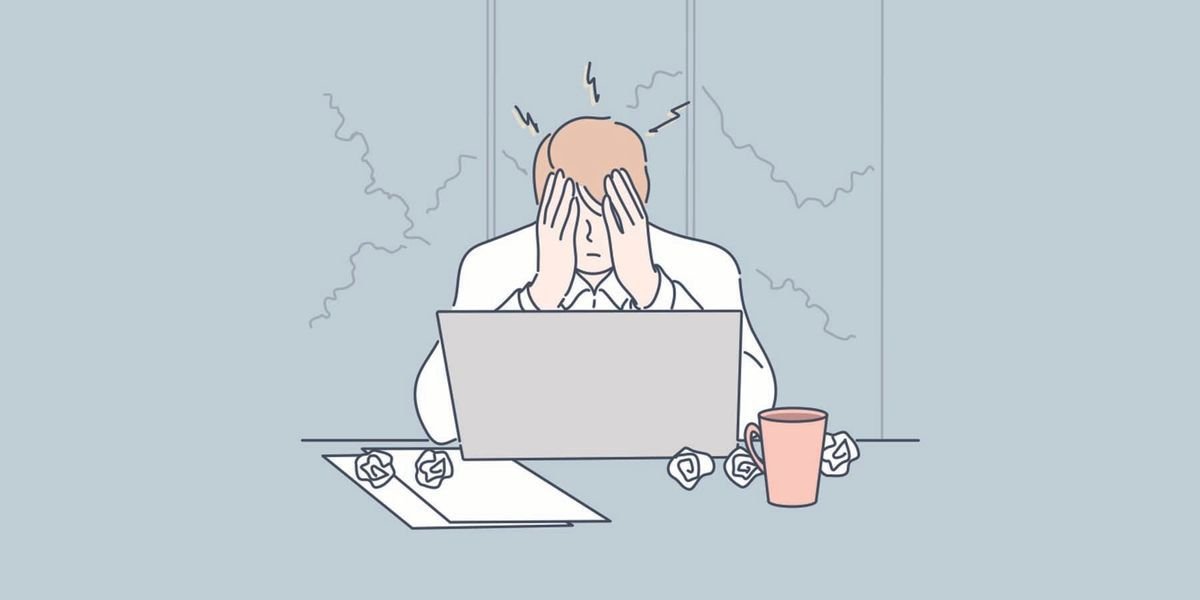Let us start today’s article with a quote from famous American philosopher John Dewey: “Failure is instructive. The person who really thinks learns quite as much from his failures as from his successes.”
Not only does John Dewey, but also many eminent scholars and personalities, regard failure as the stepping stone to success. It is not essential to make mistakes; we all do that. What is important is to learn from your mistakes. We need to realize the lesson from our mistakes to not make them again.
Why Learning from Mistakes is Important

Nowadays, mistakes are not accepted effortlessly & are occasionally over-punished. Now & then, school assessments focus more on failures than on learning. We can see it often with some children.
The fear of making a mistake freezes them so much that they keep away from participating in a class. Even though we often hear phrases like “we learn from our mistakes, fall twice, and get up three times” and understand that life and science progress through trial and error, we still struggle to accept our mistakes.
Sometimes we even get used to making the same mistakes over and over again without learning anything from them. Nowadays, many companies & entrepreneurs ask how many times an applicant has failed before hiring them to ensure they won’t make the same mistakes again. They don’t ask what type of lesson the applicant has earned. The idea of perfection in learning is just a myth.
Consequently, it is essential to value the mistakes we make when we are in the learning process instead of punishing or penalizing ourselves, considering what can be learned from them. We can curtail children’s disappointment when faced with a big challenge & strengthen them in the end, giving them the possibility that they should continue to try & not give up.
They must know that you can do anything without affecting your self-esteem since it has nothing to do with who you are but what you do. We mustn’t recognize the error because being and doing are two entirely different things.
Ways to Learn from Your Mistakes

We cannot avoid making mistakes, but we can try to learn from them. While you were aching at the time, understanding how they occurred and what you were going to do next turned a rough truth into a positive life lesson.
1. Admit Your Mistakes
This is possibly the most challenging step. It’s important to remember that just because you made a mistake doesn’t show that your whole life is a mistake or that you are bound to make mistakes. It doesn’t mean that there’s no hope or use for you. If you’re avoiding admitting something you regret, it’s because you think it describes you now—but it doesn’t.
No one is perfect; making mistakes indicates that you are learning and growing, which is a courageous act that ultimately provides you with an advantage. List all of the things you feel you have made mistakes in the past (or recently) on a sheet of paper. Add on an affirmative phrase such as “and that’s ok.”
For example, “I forgot the important meeting date; I made a mistake, but I am a human.” Letting yourself acknowledge the deficiencies in your life & reframe them with the second phrase can be therapeutic & interrupts old thinking patterns that are no longer helpful for you.
2. Allow Some Compassion for Yourself
Don’t belittle yourself over making a mistake. Instead, allow yourself some compassion. Studies have found that empathetic acceptance of your mistakes can boost your fortitude to reach your goals.
Allowing a bit of compassion for yourself will help you to make the best out of the unfavorable situation & use it to help you in the future. Try mirror work. Spend some minutes a day looking at yourself in the mirror and saying, “I forgive myself for…” to move past any regret you’re holding on to.
3. Ask Yourself the Tough Questions
Recognizing why something happened means looking at how your actions led to a mistake & your contribution to the outcome. This isn’t like blaming yourself; it’s about learning to avoid the same thing happening & noticing the signs before the situation arrives.
Writing down or uttering the answers to those questions might be difficult. But recognizing what happened in detail can help you to amend your mistake & avoid it happening again in the future. Note down all of your thoughts about the mistakes. Write for some time to release any negative emotions about the event & to have a new perspective.
4. Create a Growth Mindset
Shame can be brutal to overcome because when you’re feeling shame, you can’t say to yourself, “I made a mistake”; you say, “I am a mistake.” This mindset hinders your ability to learn and find solutions, as we often do not believe that improvement is possible at that moment.
A growth mindset can be developed when you start to believe you can change for the better. It’s contrary to shame, which says you are a terrible person & you can never change, no matter how hard you try.
5. Develop an Action Plan
As you reflect on how you can improve in the future, make a specific plan that will stop you from repeating the mistake. Think about what led to this mistake earlier. Be as thorough as possible, but stay flexible while implementing the plan.
First, make sure you know how to avoid committing the same mistake in the future. Create an ‘if-then’ plan to set yourself up. Think of all the ways your plan could go south & work out how you would handle each in advance. That way, you will be confident your plan will work. You will be convinced you can control the situation, too, if the plan goes wrong.
6. Make it Difficult to Mess Up
Let’s say that you’re trying to get into the habit of jogging. Your alarm goes off every morning at 5:00 & you hit the snooze button & go back to sleep. This is visibly a mistake if you’re trying to be healthy. You have to stop making pretexts if you want to see results. Don’t depend only on your willpower to prevent you from taking shortcuts or giving in to instant gratification.
Instead, augment your chances of success by making it difficult to make a mistake. Remember, no matter how hard it is to change a behavior or a habit, there is a time when the decision is made to either do it or not do it. Choose the second option, no matter how hard it may seem.
Read More: 9 Ways To Get More Out of Your Life
7. Try To Teach Others
If someone messes up & then realizes the wisdom they have been gifted with, they may share it with a group. Teaching others can make all of the hardships you went through useful—whether helping other people facing the same struggles or helping people to avoid the problem.
Learning by teaching has been proven to be very efficient. You reiterate what you already know when you help other people to learn from your mistakes. This step is only to be taken once you have included the lessons you learned along the way entirely & have seen a positive change in your life because of them.
Conclusion
What truly matters is how you react to your mistakes. It is essential to recognize that mistakes are unavoidable & living by trial & error is part of our natural evolution. Growth starts as soon as you identify & admit your mistake & make an honest effort to determine what went wrong.
Once you can acknowledge your limitations & overcome obstacles, you will be moving toward success. There are many ways to learn from your mistakes; just follow those steps.











